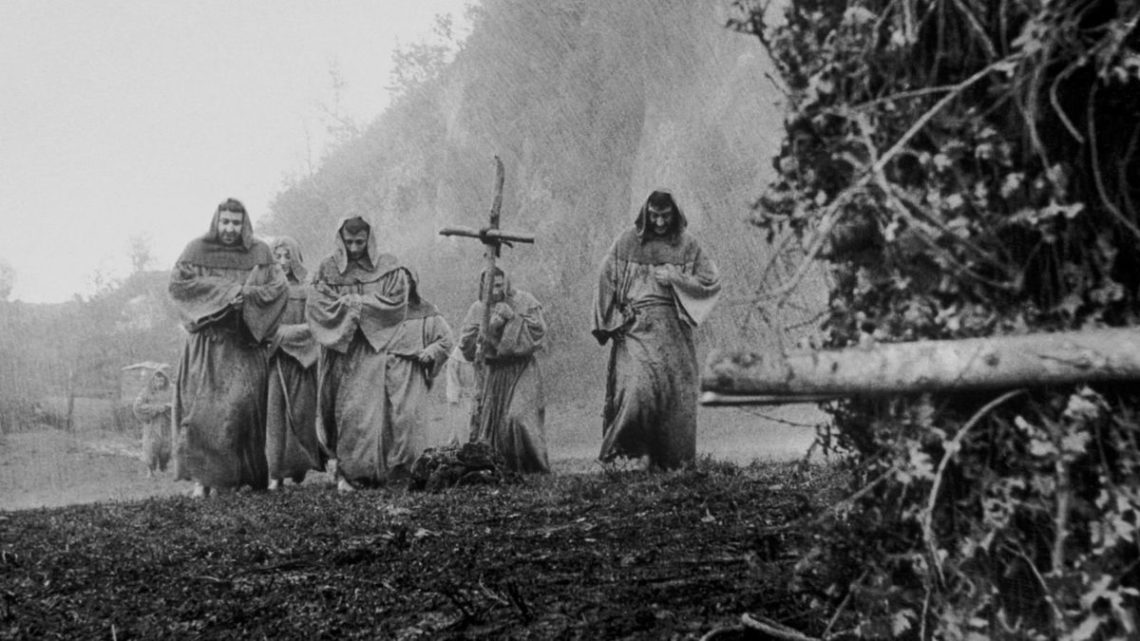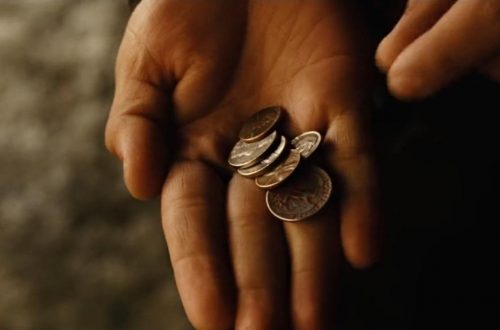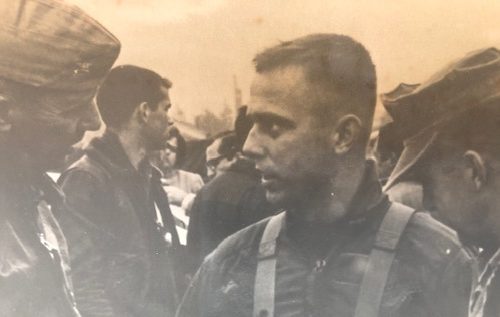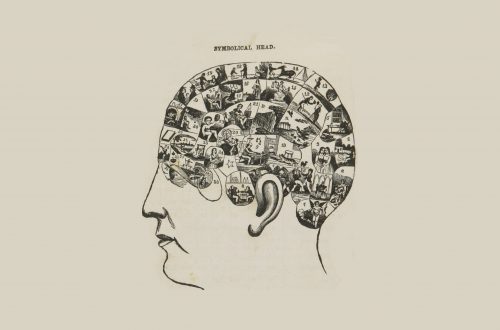The 1950 film The Flowers of St. Francis is directed by Roberto Rossellini and co-written by Federico Fellini. In this film, Rossellini illustrates a simple spiritual reality to counteract the bleak reality of post-war Italy. To create this picture of goodness and hope he uses a film philosophy and technique that would come to be called Italian neorealism. According to this philosophy, the message is the medium. Rossellini favors the still, wide-angle camera, allowing reality to unfold itself before the camera rather than confining the construction of reality to the will of the cinematographer. His camera discovers rather than invents. He uses non-professional actors, improvised scenes, natural light, and an intentionally low budget. Rather than tightly planning and executing a scene, he lets the natural drama of the story and setting unfold. As a result, the film develops a life of its own apart from all of the technical elements, and a striking beauty emerges in the natural interplay of the actors, all but one of whom are actual Franciscan monks. The plot of The Flowers of St. Francis consists simply of a group of Franciscan monks telling the stories of St. Francis and his brothers, with the screenplay beautifully laying out a framework and otherwise staying out of the way.
Italian neorealism played a significant role in moving Western art and culture beyond the tight controls of totalitarianism. In the midst of the great crisis of truth that followed the World Wars, Rossellini’s films suggest that there is no more true character than someone playing himself. The strict distinction between documentary and drama is a false one. All film is both documentary and drama, and the truth of a film lies in its ability to transcend this dichotomy. The monks are actors, but they play a deeply familiar part. You can see the joy of their calling on their faces and in their light, naturally choreographed movements.
This film divided the film world. Apparently it even left monks divided down the middle as to their opinions. Once, Rossellini had the opportunity to watch the film with Monsignor Roncalli, who would become Pope John XXIII. During the film, Rossellini said that Roncalli kept turning to him, stroking his jacket sleeve and saying, “Poor man, you don’t know what you’ve done.”
The source material for Rossellini’s film is the treasured spiritual classic, The Little Flowers of St. Francis. The definitive edition linked here includes The Life of Brother Juniper, The Life of Brother Giles, and other writings.
The film itself is available for purchase as a part of the Criterion Collection or currently available for viewing online at The Little Cinema’s YouTube channel.





